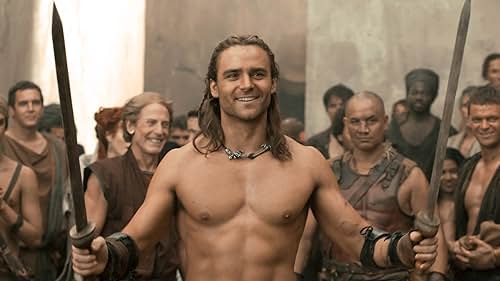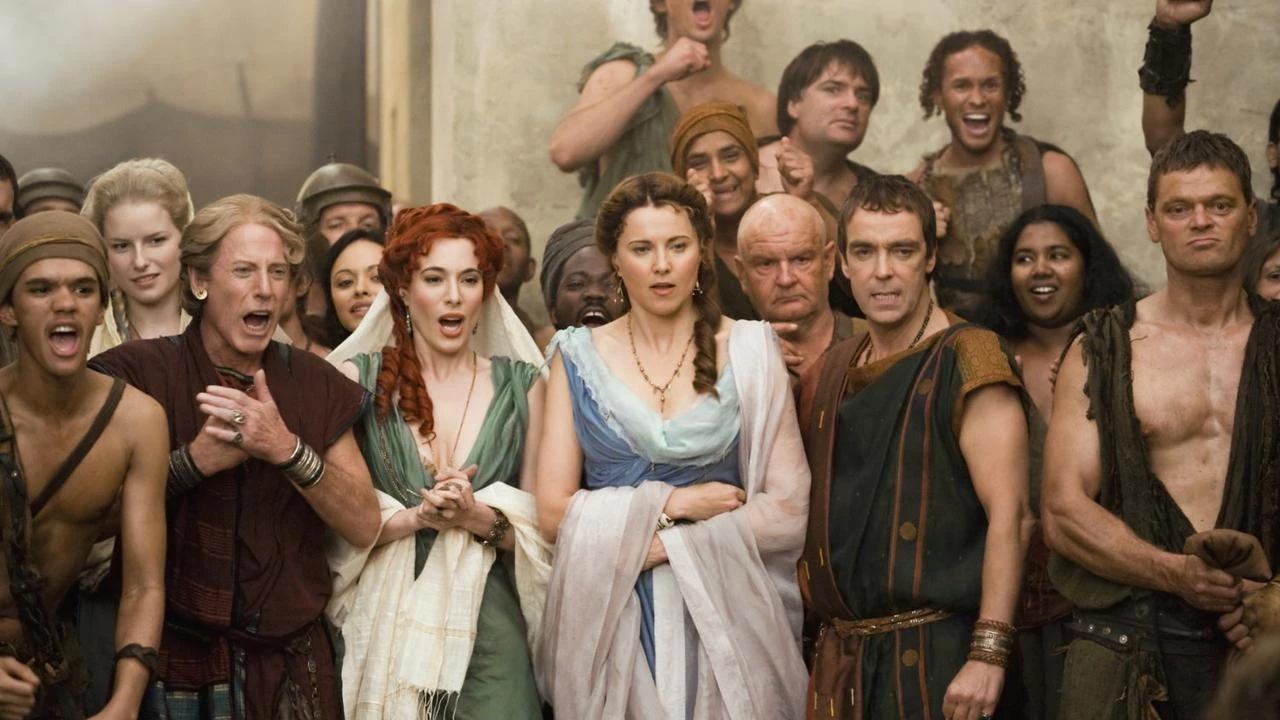Spartacus: Gods of the Arena (2011)

Spartacus: Gods of the Arena (2011) is a prequel to the acclaimed Spartacus: Blood and Sand (2010), diving deeper into the origins of the gladiators at the House of Batiatus. This series is set in the historical world of ancient Rome and provides a gritty and action-packed narrative that focuses on the brutal, bloody world of gladiatorial combat, politics, and betrayal. With its distinct storytelling and character development, it stands as a unique chapter in the Spartacus saga.
Plot Overview:
Set years before Spartacus himself arrives at the House of Batiatus, Gods of the Arena tells the story of the rise of Batiatus (John Hannah) and his ruthless quest to dominate the gladiatorial arena. The plot focuses on the power dynamics between the Batiatus family, their gladiators, and the political machinations of the Roman elite.
The main character is Gannicus (Dustin Clare), a skilled and rebellious gladiator whose rise to fame occurs within the arena. His journey is shaped by his desire for freedom, as well as by the intricate and often toxic relationships within the House of Batiatus. We also see the machinations of Lucretia (Lucy Lawless), whose role as the ambitious and manipulative wife of Batiatus is central to the story, as she plays an integral part in the family’s political ambitions.
Characters and Performances:
-
Gannicus: As the lead gladiator, Gannicus is both the hero and the anti-hero. His journey is filled with internal conflict as he struggles with the idea of being owned by his masters. Dustin Clare gives a strong performance, balancing strength, vulnerability, and a charismatic leadership quality that makes Gannicus a fan-favorite.
-
Batiatus: John Hannah brings an unmatched level of charm and malice to the role of the ambitious owner of the gladiator school. His character evolves from a loyal servant to a man driven by his hunger for power, making him both pitiable and despicable.
-
Lucretia: Lucy Lawless’s portrayal of Lucretia is nothing short of stellar. Her character is cunning, manipulative, and an expert at weaving webs of deceit. The depth of her scheming and her emotionally charged performance add a compelling layer to the series.
-
Other Key Characters: The series introduces several notable gladiators, such as Oenomaus (Peter Mensah), the seasoned veteran who serves as a mentor to the younger fighters, and Ashur (Nick Tarabay), whose ambition leads to a betrayal that propels the story.

Themes:
-
Betrayal and Power Struggles: The series delves into the complexities of Roman society, where loyalty is often secondary to ambition. Characters are constantly betraying one another, with each backstab serving as a plot twist that shifts the power balance. The political intrigue is a constant undercurrent that runs throughout the entire series.
-
Freedom vs. Slavery: At its heart, the story examines the cost of freedom, particularly for the gladiators who fight for survival. The series contrasts the lives of the powerful Romans and the enslaved gladiators who struggle for autonomy, dignity, and survival.
-
Gladiatorial Combat: The violence in Spartacus: Gods of the Arena is intense, as expected from the franchise, and the arena scenes are depicted with a raw intensity. The blood, gore, and raw physicality of the combat are used not just for shock value, but to underline the grim reality that the gladiators face.
Visuals and Direction:
The show maintains the distinct visual style established in Spartacus: Blood and Sand – a dark, stylized approach to violence and bloodshed. The cinematography, though saturated with CGI blood splatters, is effective in creating a gritty, visceral atmosphere. The fight choreography is intense, and the pacing of the show is designed to keep the viewers engaged with the drama while delivering the action in a satisfying way.
Reception and Impact:
Spartacus: Gods of the Arena was met with positive reviews for its compelling characters and intense action sequences. While it did not reach the level of Spartacus’ iconic rise to power in the original show, it still captivated fans with its exploration of the world before Spartacus. The prequel also received praise for providing more backstory to characters that were critical in the main series, especially in terms of the complex relationships within the House of Batiatus.
Conclusion:
Spartacus: Gods of the Arena delivers on all fronts – action, drama, character depth, and suspense. While the prequel lacks the direct involvement of Spartacus, the world-building is rich, and the drama is compelling. Fans of the original Spartacus series will appreciate the origins of characters they came to love or hate, and newcomers will be able to dive into a well-crafted, fast-paced story of power, betrayal, and survival.











